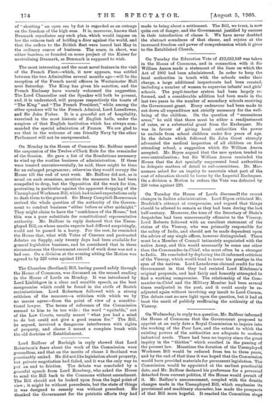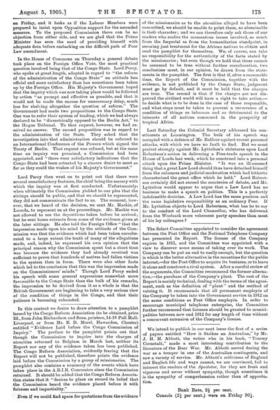. On Wednesday, in reply to a question, Mr. Balfour
informed the House of Commons that the Government proposed tO appoint at an early date a Royal Commission to inquire into the working of the Poor Law, and the extent to which the existing powers of the authorities are adequate to modern industrial needs. There had been no inquiry since the great inquiry in the " thirties " which resulted in the passing of the present law. Meantime the duration of the Unemployed Workmen Bill would be reduced from ten to three years; and by the end of that time it was hoped that the Commissior. would have provided materials for permanent legislation. The Commission would be appointed at the earliest practicabla date, and Mr. Balfour declared his preference for a person detached from current politics, if the House would permit ot it. Mr. Balfour's announcement, coupled with the drastie changes made in the Unemployed Bill, which emphasise its provisional and machinery character, has made the prospects of that Bill more hopeful. It reached the Committee sta0
on Friday, and it looks as if the Labour Members were prepared to insist upon Opposition support for the amended measure. To the proposed Commission there can be no objection from either side, and we are glad that the Prime Minister has seen the need of providing himself with adequate data before embarking on the difficult path of Poor Law amendment.







































 Previous page
Previous page